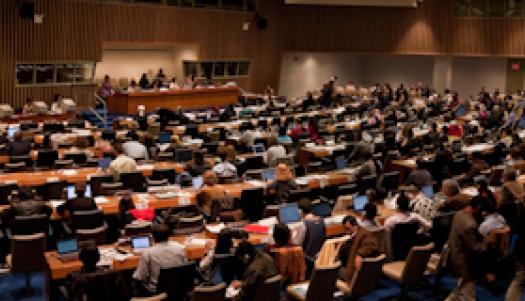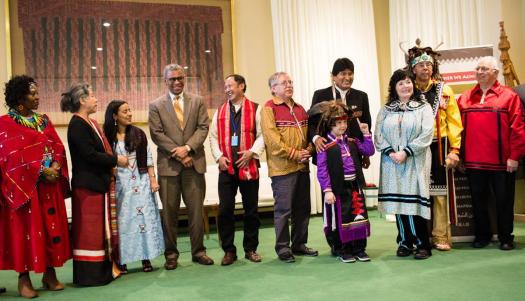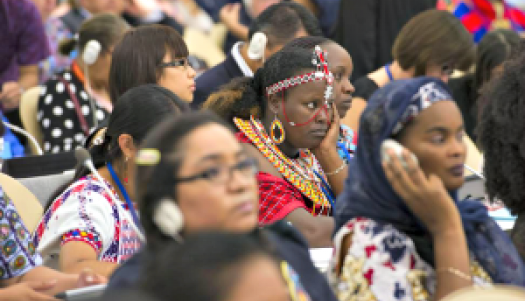
The United Nations Declaration on the Rights of Indigenous Peoples (UNDRIP) was adopted by the General Assembly on 13 September 2007, with 144 countries voting in support, 4 voting against and 11 abstaining.
Fourteen years have passed since the UN Declaration was adopted by the General Assembly. Since then, the four countries voting against have reversed their position and now support the Declaration.
Today, the Declaration is the most comprehensive international instrument on the rights of Indigenous Peoples. It establishes a universal framework of minimum standards for the survival, dignity and well-being of the Indigenous Peoples of the world and it elaborates on existing human rights standards and fundamental freedoms as they apply to the specific situation of Indigenous Peoples.
Some highlights of the Declaration
- Seventeen of the forty-five articles of the Declaration address Indigenous culture and how to protect and promote it, by respecting the direct input of Indigenous Peoples in decision-making, and allowing for resources, such as those for education in Indigenous languages and other areas.
- Fifteen of the forty-six articles of the Declaration call for Indigenous Peoples’ participation in all decisions that will affect their lives, including meaningful participation in a democratic polity.
- The Declaration confirms the right of Indigenous Peoples to just and fair redress when deprived of their means of subsistence and development.
- The Declaration calls on States to provide effective mechanisms and measures to combat and eliminate discrimination against Indigenous Peoples, promotes their full and effective participation in all matters that concern them, as well as their right to remain distinct and to pursue their own visions of economic and social development.
While implementation of the Declaration worldwide remains uneven, there has been recent progress. In June 2021, the Canadian Senate passed Bill C-15 (UNDRIP Act) which following Royal Assent, has become law. The UNDRIP Act is Canada’s first substantive step towards ensuring federal laws reflect the standards set out in the Declaration.
More information about the UN Declaration, click here >>>
Mas información sobre la Declaración, haga clic aquí >>>
For all UN outreach and social media materials related to the UN Declaration Anniversary, visit our Trello board here >>>
Social media accounts
Facebook: https://www.facebook.com/unpfii/
Twitter: https://twitter.com/UN4Indigenous
Instagram: https://www.instagram.com/un4indigenous
The following hashtags will trigger an emoji on 13 September, please use them!
English: #WeAreIndigenous
French: #Autochtones
Spanish: #SomosIndígenas
 Welcome to the United Nations
Welcome to the United Nations


